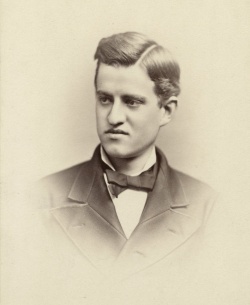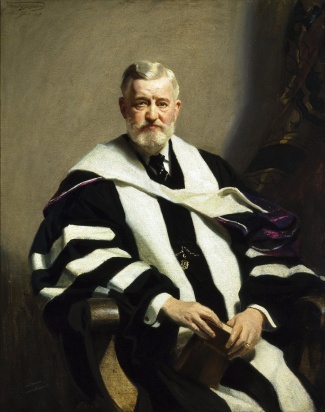Henry Clay Folger
Henry Clay Folger (June 18, 1857-June 11, 1930) was born in New York City to Henry Clay Folger, Sr., and Eliza Jane Clark Folger. Through his ancestor Peter Foulger, who settled in Massachusetts in the late 1620s,[1] Folger was distantly related to Founding Father Benjamin Franklin, astronomer Maria Mitchell, and social reformer Lucretia Mott.[2]
Early life

As a child, Henry's family moved often; before Henry matriculated at Amherst College, his family had lived in twelve different residences in Manhattan and Brooklyn, as well as a home upstate in Troy, New York. From 1873 to 1875, he attended Adelphi Academy, a coeducational prep school in Brooklyn founded in part by Henry Ward Beecher. At Adelphi, Henry made the acquaintance of businessman Charles Pratt, who would long serve as a mentor to Henry, as well as of Pratt's son Charles Jr., with whom Henry attended Amherst.
Henry began classes at Amherst in fall of 1875. He joined the Alpha Delta Phi fraternity and sang in the College's Glee Club, which performed in Boston and Brooklyn. He also participated in a variety of oratorical essay contests; he was one of the Kellogg Prize winners in 1876 for the essay, Pericles before the Aeropagus, and took first prize for an 1879 essay on Tennyson. Henry modeled his oratorical style on Daniel Webster. As a senior, Henry performed as Dick Deadeye in Amherst's production of HMS Pinafore, a role that later prompted Emily Jordan Folger to nickname her husband "Dick".[3]
Marriage to Emily Clara Jordan
Career
Shakespeare collecting

The Folger Shakespeare Library
Later life and death
Notes
<references>